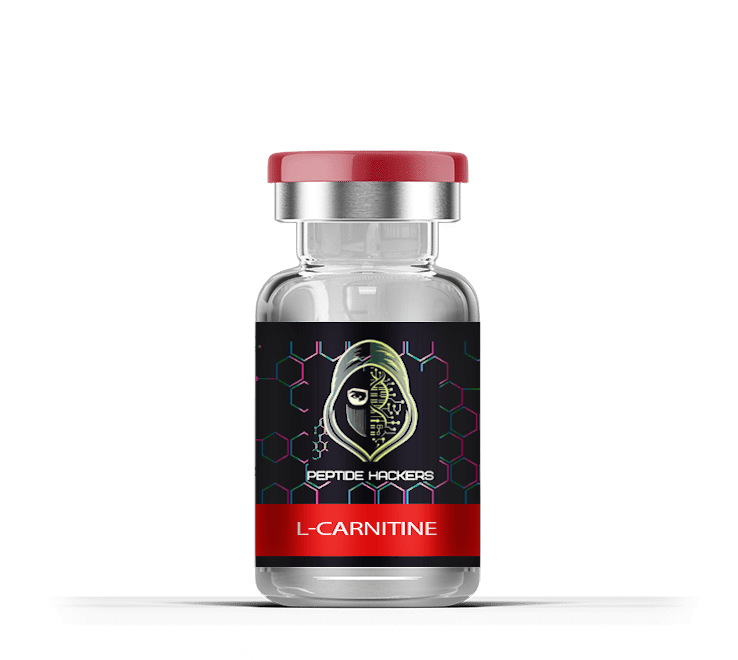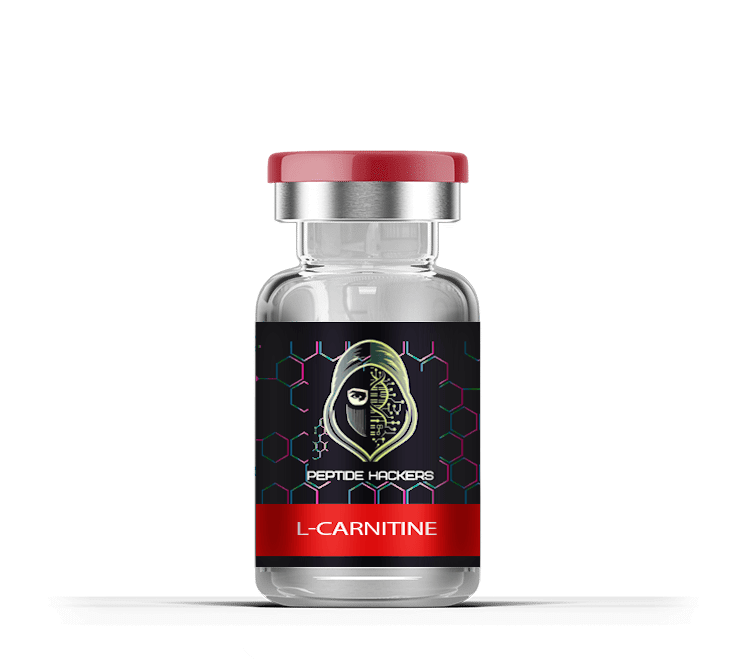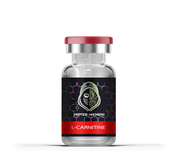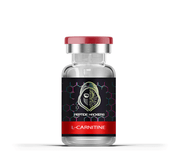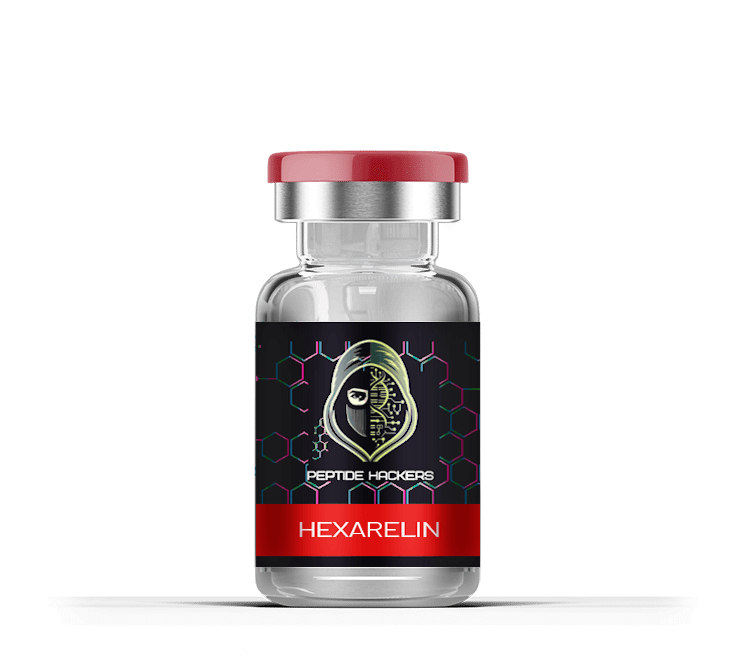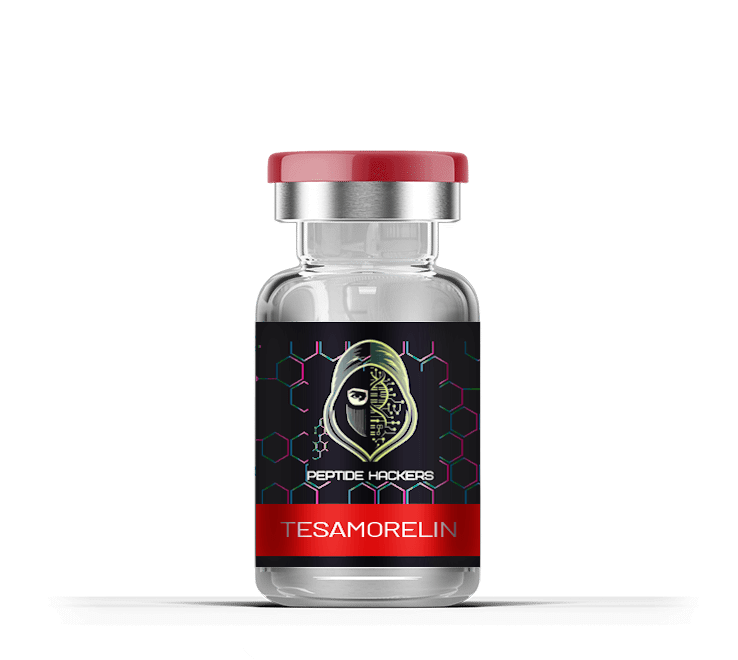L-Carnitine Peptide for Sale | Research Grade 99% Pure | In Stock
Shipping: We offer reliable shipping options both domestically and internationally. All orders are processed within 1-2 business days. Shipping times vary depending on your location, and you will receive a tracking number once your order has shipped. Please note that international customers are responsible for ensuring that peptide products comply with their country’s import regulations.
Returns: Due to the specialized nature of our products, we do not accept returns or exchanges. If you receive a damaged or incorrect item, please contact our customer support team within 7 days of delivery. We will work to resolve the issue as quickly as possible, either by sending a replacement or providing a refund if applicable. For additional questions about shipping or returns, please reach out to our support team.
CRITICAL RESEARCH DISCLAIMER
FOR LABORATORY RESEARCH USE ONLY. NOT FOR HUMAN CONSUMPTION. NOT FOR VETERINARY USE.
All information on this page is for educational and laboratory research purposes only. This content discusses published research studies and does NOT constitute medical advice or recommendations for human use.
L-Carnitine Research Compound: Research Overview and Laboratory Applications
What Is L-Carnitine in Research?
L-Carnitine is a compound synthesized from amino acids that has been extensively studied in laboratory research settings. Research examines its role in transporting fatty acids into mitochondria in cellular models. It's frequently used in studies of metabolic processes, energy production, and cellular function research. This l carnitine compound plays a role in fatty acid oxidation and skeletal muscle energy metabolism research in laboratory models.
For laboratory research purposes only. Not for human consumption.
Research shows the body synthesizes L-carnitine from lysine and methionine, and dietary sources include red meat, fish and dairy in nutritional studies. Research on dietary patterns shows varying levels of this compound in different populations studied. This dietary l carnitine research examines the body carnitine pool and overall carnitine metabolism in experimental models.
L-carnitine supplementation has been studied in numerous randomized controlled trials for research purposes in various areas. Published research examines energy production pathways, while injectable forms are studied for bioavailability research in laboratory settings.
Research data only. For educational purposes.
Research Applications in Laboratory Studies
L-Carnitine is used for multiple research purposes in laboratory settings:
- Fat metabolism research - Laboratory studies examine how it affects metabolic processes
- Energy production studies - Research explores cellular energy mechanisms
- Cardiovascular research - Studies examine effects on heart function markers
- Cellular function research - Laboratory investigations of various cellular processes
- Metabolic research - Studies of insulin sensitivity and energy metabolism
One form, known as acetyl-L-carnitine, has been studied for cognitive function research in laboratory models. This form is examined in acetyl l carnitine metabolism studies.
For laboratory investigation only. Not for human use.
Fat Metabolism Research
Laboratory research examines L-Carnitine's role in fat-to-energy conversion processes during fasting or exercise models. Research studies have investigated metabolic effects in experimental settings. A systematic review and meta analysis examined l carnitine supplements effects on body composition markers in research studies.
The effects of l carnitine on metabolic processes work through enhanced fatty acid oxidation in laboratory models. Research examines transport of long chain fatty acids into mitochondria in cellular studies.
Research findings only. For educational purposes. Not for human application.
Exercise Performance Research
Research on exercise performance examines effects of carnitine supplementation in laboratory and clinical studies. Published research investigates:
- Muscle damage markers in exercise research
- Recovery parameters in training studies
- Skeletal muscle mass maintenance in research models
- Plasma ammonia concentrations in fatigue research
The effect of l carnitine on performance markers is documented in randomized controlled trials for research purposes.
Research observations only. Not for human use.
Hormone and Fertility Research
Laboratory research examines L-Carnitine's effects on hormone function and reproductive markers in experimental models. Studies investigate l carnitine treatment effects on cellular parameters.
Research also examines potential applications in polycystic ovary syndrome (PCOS) models, where carnitine supplements are studied for metabolic function markers.
For laboratory research only. Not for human consumption.
Research Safety Profile
Laboratory research has documented various observations in experimental studies. Research protocols note:
- Gastrointestinal markers in some research subjects
- Metabolic markers in high-dose studies
- Rare observations in specific research models
Research on medication interactions includes studies with anticonvulsant valproic acid and carnitine depletion in experimental models. Research should be conducted under appropriate supervision.
High doses can affect plasma ammonia concentrations in some research models. Injectable forms used in research are studied for different absorption characteristics than oral forms.
Research safety data only. For educational purposes. NOT FOR HUMAN USE.
Research Population Studies
Several research areas have been investigated in laboratory and clinical studies:
- Metabolic research in various populations
- Athletic performance research in exercise studies
- Age-related research in older populations
- Dietary pattern research in different groups
- Energy metabolism research studies
- Chronic kidney disease research (under medical supervision)
- Chronic heart failure research studies
- Peripheral artery disease research investigations
Research study populations only. For educational purposes.
Research Protocol Considerations
Laboratory research protocols document various considerations:
- Pregnancy and lactation (insufficient research data)
- Kidney function research models
- Drug interaction research studies
- Genetic factors affecting carnitine metabolism in research
For laboratory research only. Not for human application.
Research Timing Protocols
Research studies have examined various administration timing in laboratory settings:
- Fasting state research protocols
- Meal-timing research studies
- Morning administration research
- Pre-exercise timing research
Research protocols only. Not for human use.
Research Dosing in Laboratory Studies
Published research protocols vary based on study objectives:
Metabolic research: 1,000–2,000 mg daily in studies
Exercise research: 2,000-4,000 mg (l-carnitine l-tartrate) in studies
Cognitive research: 500-1,500 mg (acetyl-L-carnitine) in studies
Injectable (research use): 50–500 mg in laboratory protocols
These doses come from placebo controlled clinical trial data and systematic review analyses for research purposes.
Research dosing only. For laboratory investigation. NOT FOR HUMAN USE.
Dietary Sources in Nutritional Research
Nutritional research documents L-Carnitine content in:
- Red meat (95-140mg per 100g in nutritional analysis)
- Fish and poultry in dietary studies
- Dairy products in nutritional research
- Plant foods (minimal amounts) in dietary research
It's also studied as a dietary supplement in various forms for research purposes. For laboratory use, research-grade materials ensure accurate research results.
Nutritional research data only. For educational purposes.
Insulin Resistance Research
Laboratory research examines L-Carnitine effects on glucose and insulin markers in experimental models. Studies investigate l carnitine administration effects on insulin resistance markers in research settings.
Research examines mechanisms involving lipid metabolism and fat accumulation in tissue research models.
For laboratory research only. Not for human consumption.
Cognitive Function Research
Research studies examine L-carnitine effects on mood, memory and cognitive markers in various populations. Acetyl l carnitine supplementation is studied for cognitive function markers in laboratory research.
Research observations only. For educational purposes.
Cardiovascular Research
Laboratory research examines L-Carnitine effects on cardiac energy metabolism in experimental models. Research in cardiovascular disease examines markers for:
- Chronic heart failure research studies
- Peripheral artery disease research investigations
- Overall cardiovascular risk marker research
Research data only. Not for human use.
Body Composition Research
Research examines effects on body weight and body composition markers in combination with diet and exercise variables. Systematic review and meta analyses document effects on fat mass markers in research studies.
For laboratory research purposes only.
Pregnancy Research
Research data on pregnancy is limited. The body carnitine pool changes during pregnancy in research models, but supplementation research is limited.
Research information only. Not recommendations for human use.
Nutrient Interaction Research
Research examines interactions with fat-soluble vitamins and omega-3s in laboratory studies. These interactions are studied for metabolic effects in research settings.
Research data only. For educational purposes.
Drug Interaction Research
Laboratory research documents potential interactions with:
- Anticoagulants in research models
- Thyroid medications in studies
- Valproic acid (epilepsy research)
The anticonvulsants valproic acid can cause carnitine depletion in research studies.
For laboratory research only. Not medical advice.
Athletic Performance Research
Research examines recovery, endurance and fatigue markers in exercise studies. Benefits documented in research include:
- Improved exercise performance markers
- Better maintenance of skeletal muscle mass in studies
- Reduced muscle damage markers in research
- Faster recovery markers in laboratory studies
Research findings only. Not for human application.
Special Population Research
Chronic Condition Research
Research examines populations with chronic kidney disease, chronic heart failure, or chronic fatigue syndrome. L carnitine deficiency is studied in these conditions.
Dietary Pattern Research
Research documents levels in plant-based diet populations. Dietary supplements are studied for maintaining adequate status in research models.
Aging Research
Age-related changes in L-carnitine are studied in research populations for energy and cognitive function markers.
All population research is for educational purposes only. Not recommendations for human use.
Laboratory Research Applications
In laboratory settings, L-carnitine is studied for:
- Fatty acid oxidation mechanisms research
- Amino acid metabolism studies
- Lipid metabolism pathway research
- Insulin resistance improvement studies
- Various cellular function research
For laboratory investigation only. Not for human use or consumption.
Research Compound Forms
Different forms studied for different research purposes:
- L-carnitine: General metabolic research
- Acetyl-L-carnitine: Cognitive function research
- Propionyl-L-carnitine: Cardiovascular research
- L-carnitine L-tartrate: Performance research studies
Research compounds only. For laboratory purposes.
Research Quality Considerations
When selecting L-carnitine for laboratory research:
- Choose products with verified purity for research
- Look for third-party testing documentation
- Avoid D-carnitine contamination for accurate research
- Use research-grade materials for reliable results
Quality considerations for research applications only.
Current Research Directions
Ongoing laboratory studies examine:
- Long-term effects on cardiovascular risk markers
- Role in insulin resistance research
- Applications for fatigue research
- Studies in polycystic ovary syndrome models
- Effects on body composition in research populations
Research directions only. For educational purposes.
Frequently Asked Research Questions
Q: What is L-carnitine in research contexts?
A: It's a research compound used in laboratory studies examining energy metabolism and fat transport mechanisms in cellular models.
Q: What does research show about fat metabolism?
A: Research examines how it facilitates stored fat utilization in energy production studies.
Q: What does research show about hormone function?
A: Laboratory studies examine androgen receptor activity in experimental models.
Q: What does L-carnitine do in research models?
A: It transports fatty acids to mitochondria in cellular research, where metabolic processes are studied.
Q: Is injectable L-carnitine used in research?
A: Yes, in laboratory studies. Research protocols document various observations.
Q: What research considerations exist?
A: Research should follow appropriate protocols and safety guidelines in laboratory settings.
All FAQs are for educational and research purposes only. Not medical advice or recommendations for human use.
FINAL IMPORTANT DISCLAIMER
This article is for educational and informational purposes only. The L-carnitine products discussed are sold strictly for laboratory research purposes and are NOT intended for human consumption. NOT FOR VETERINARY USE.
This content does NOT constitute medical advice or recommendations. All information discusses published research studies in laboratory settings. Researchers must obtain proper institutional approval before conducting studies with this compound. Always ensure compliance with all applicable regulations regarding research compounds.
FOR LABORATORY RESEARCH USE ONLY. NOT FOR HUMAN CONSUMPTION.
Our Story, Our Promise
At PeptideHackers, we’re committed to advancing research by providing high-quality peptides for scientific and research purposes. We ensure the highest standards and transparency in every product, supporting your research with science-backed solutions. Welcome to PeptideHackers.
Frequently Asked Questions
-
Due to the sensitive nature of our research products, we do not accept returns or exchanges. However, if you receive a damaged or incorrect item, please contact our customer support team within 7 days of receiving your order, and we will work to resolve the issue.
-
Research peptides are short chains of amino acids designed for laboratory and scientific research purposes only. They are not intended for human or animal use.
-
Peptides should be stored in a cool, dry place. For long-term storage, refrigerate at 4°C, and for even longer preservation, freezing at -20°C is recommended.
-
Yes, we provide a Certificate of Analysis (COA) for every batch of peptides, detailing the purity and composition to ensure research quality.

